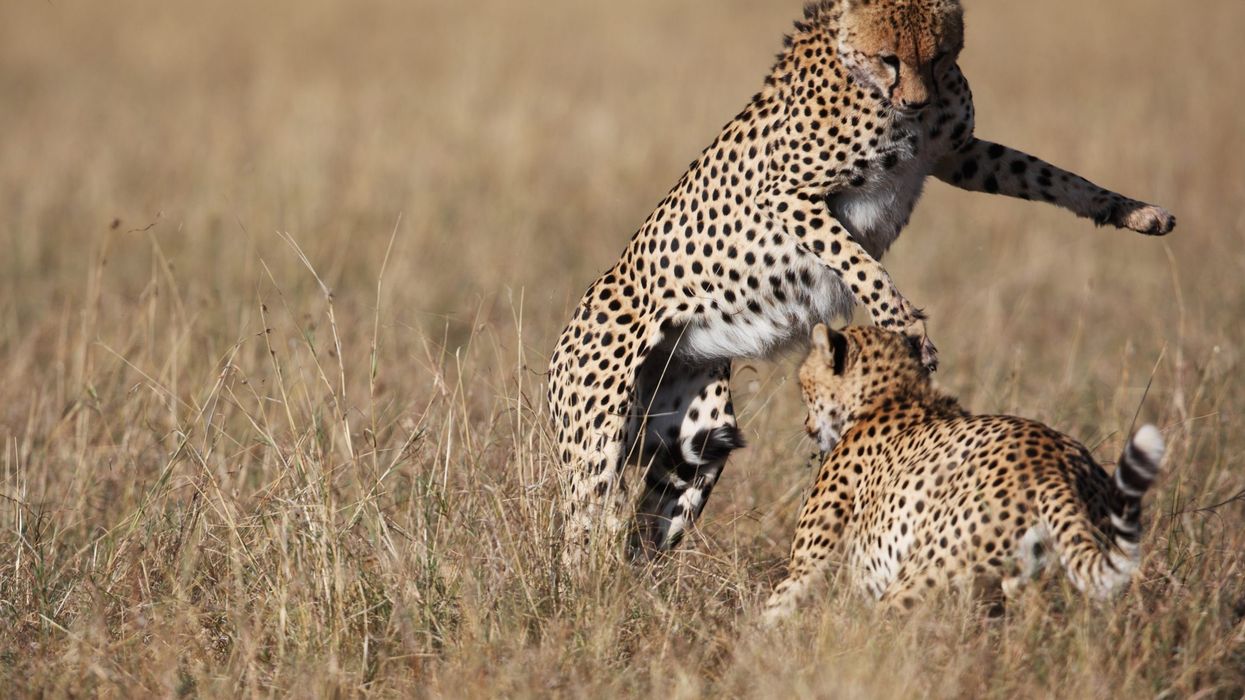After the death of seven cheetahs in India's Kuno National Park (KNP) since March this year, wildlife experts have raised concerns about the handling of the African felines and recommended involving more experienced veterinarians in their care.
In the most recent incident, male cheetah Tejas died in the KNP on Tuesday (11).
According to a forest official, the autopsy report indicated that the cheetah was "internally weak" and unable to recover from a "traumatic shock" following a violent fight with a female cheetah.
Tejas' death, brought to KNP in the state of Madhya Pradesh from South Africa in February this year, deals another setback to the central government's cheetah reintroduction programme, launched with great enthusiasm in September last year.
This incident marks the seventh death of felines, including three cubs born to Namibian cheetah 'Jwala,' at KNP since March.
Talking to PTI, Dehradun-based Wildlife Institute of India's (WII) former dean and senior professor Y V Jhala said, "Though cheetah deaths were expected in this reintroduction programme, more surprising is the fact these mortalities happened in the enclosed bomas where they were least expected. Cheetahs were expected to die after release from the safe enclosure, not within it."
Jhala said he was told the latest death of cheetah Tejas was because of infighting. "A female cheetah attacking and killing a male is something which has never been reported anywhere across the cheetah's range,” he said.
Moreover, this female cheetah was hand reared and was learning the skills of making a kill, therefore it is surprising the feline attacked and managed to kill the wild male cheetah, Jhala said.
"The deaths were expected in free ranging conditions because of fights with leopards, wild prey and human causes, but none of the death that took place in the KNP free range. This is commendable for the management,” he said.
Similarly, the death of three cubs "in captivity" was also surprising and puts a question mark over their handling. If the cubs were malnourished, then they should have been given supplements to make them healthy, he said while terming these deaths as a "big loss" for the re-introduction programme and a costly learning experience.
"Cheetah deaths in Kuno are not that important for the success of the project. What is urgently required is preparedness of other sites for the release of the cheetahs," the expert said. A minimum of three-to five sites like Kuno are required for the cheetah reintroduction project to succeed in India, with a proper budget allocation by the central government, Jhala said.
A retired dean of the Jabalpur-based Nanaji Deshmukh Veterinary Science University, who did not wish to be named, also expressed concern over the death of seven cheetahs in a span of four months. “The re-introduction programme is good and in such exercises, few mortalities are also expected,” he said.
He suggested that senior experienced veterinarians be involved in the team managing the cheetahs, for the success of this ambitious reintroduction programme. Another retired professor from the university on condition of anonymity said a cheetah or any other animal translocated from another continent faces difficulties in acclimatisation, be it the habitat, food or weather conditions.
“Secondly, any animal tranquilised once or twice or more for capturing becomes weak from inside because of change in the internal hormones and their enzymes also behave adversely,” he said.
The survival rate of such captured wild animals, like deer or others, is just 20-30 per cent, he claimed.
“The third and most important factor is in case of any sickness or injuries resulting from infighting or any other reason, if the reporting of the same is done on time, then the chances of survival of the animal improves,” the expert said.
He also suggested roping-in of more experienced veterinarians in the team handling the cheetahs for better management of the reintroduction project.
Wildlife activist Ajay Dubey from Bhopal also demanded that Madhya Pradesh chief minister Shivraj Singh Chouhan make changes in the cheetah management team by deploying trained wildlife officers at the emergency level for better results.
From 24 cheetahs - 20 translocated from Namibia and South Africa and four cubs born at the KNP - the total count of felines at the KNP has now dropped to 17. The fastest land animal was declared extinct in the country in 1952.
(PTI)




